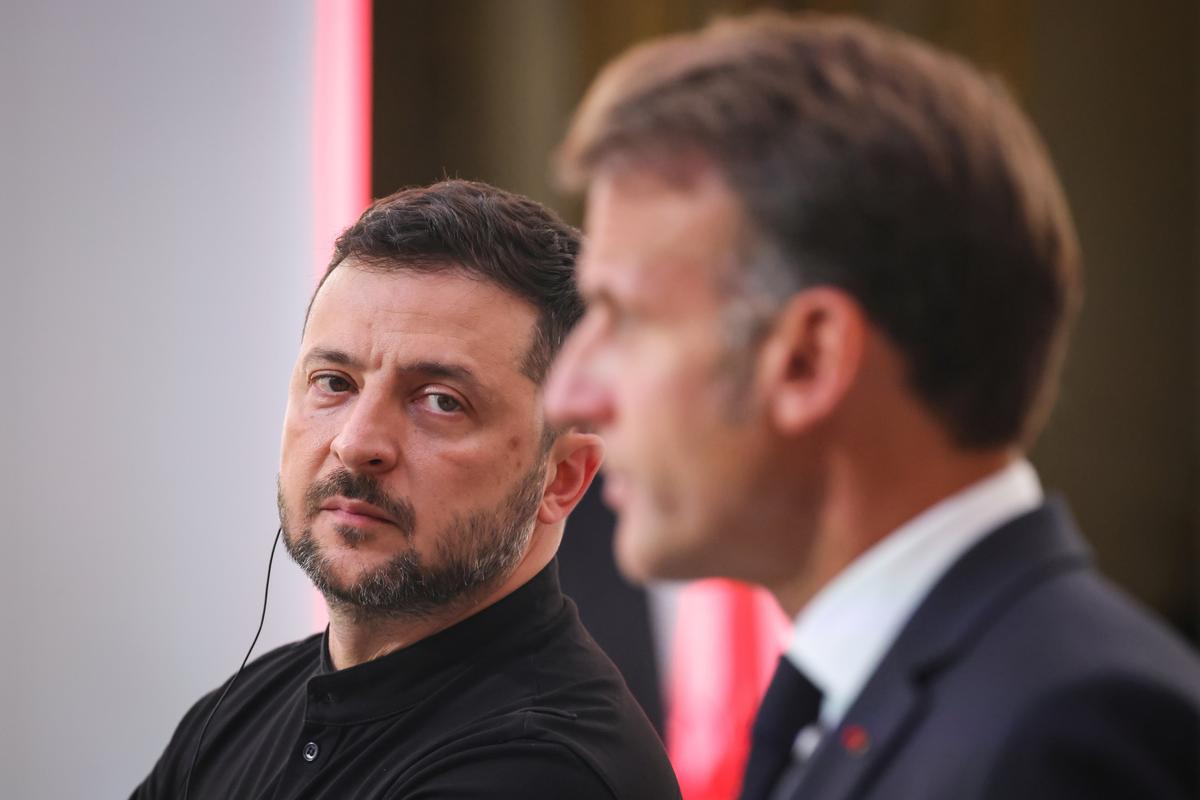
Ukrainian President Volodymyr Zelensky looks on as French President Emmanuel Macron speaks during a press conference in Paris, France, 4 September 2025. Photo: EPA/LUDOVIC MARIN
Despite 26 countries having agreed to commit troops to a military force to protect post-war Ukraine from fresh Russian aggression, questions remained over the Trump administration’s willingness to support such efforts on Friday, with what role, if any, Washington is prepared to play in ensuring Ukraine’s long-term security still unclear.
Following a meeting of the so-called Coalition of the Willing in Paris on Thursday, French President Emmanuel Macron announced that 26 countries had pledged “to be present on land, at sea or in the air” in Ukraine to deter any future Russian invasion, but the plan appears to rely on unspecified US support.
Ukrainian President Volodymyr Zelensky declined to disclose the size of the prospective force on Thursday, saying that it would ultimately be decided by White House policy. “We are counting on a US backstop… the exact American contribution will be specified in the coming days,” Zelensky said, according to Euronews.
The German government also signalled on Thursday that although it was prepared to expand its training and boost its funding of the Ukrainian military, any decision on deploying its own armed forces would depend in part on Washington clarifying its future role.
In comments reported by Reuters, a spokesperson for the German government said that Berlin would make a final decision on military engagement “in due course when the framework is clear,” adding that key factors would include “the kind and extent” of US engagement, as well as “the result of a negotiation process”.
In August, US President Donald Trump said that Washington would “help” provide security guarantees to Ukraine and play the role of a “coordinator”, but the White House has yet to clarify what form American involvement is likely to take.
Western security officials had hoped Trump would offer more details during Thursday’s meeting in Paris, but when he joined the meeting by telephone he instead “struck a combative tone” and criticised Europe for its continued purchase of Russian oil, Reuters reported on Friday, citing a White House source.
Senior US defence officials also said last week that the US intended to phase out its security assistance programme for NATO countries bordering Russia in an effort to encourage European countries to pay more for defence, the Financial Times reported on Thursday, noting that the programme’s cancellation would most affect Estonia, Latvia and Lithuania.
Moscow, meanwhile, has continued to reject the idea of Western peacekeeping troops being deployed to Ukraine, with Vladimir Putin calling the proposal “nonsensical” on Friday, according to TASS.
“If a solution is achieved that leads to a long-lasting peace, then I simply see no point in [Western forces] being located on Ukrainian territory,” Putin said while attending the Eastern Economic Forum in the Russian city of Vladivostok.
Warning that the coalition’s plan wouldn’t “help us get closer to resolving the Ukrainian conflict”, Kremlin spokesperson Dmitry Peskov said on Friday that any foreign military deployment on Ukrainian soil in the event of a ceasefire would be “dangerous”, and that it was impossible to “ensure the security of one country by destroying that of another”.
